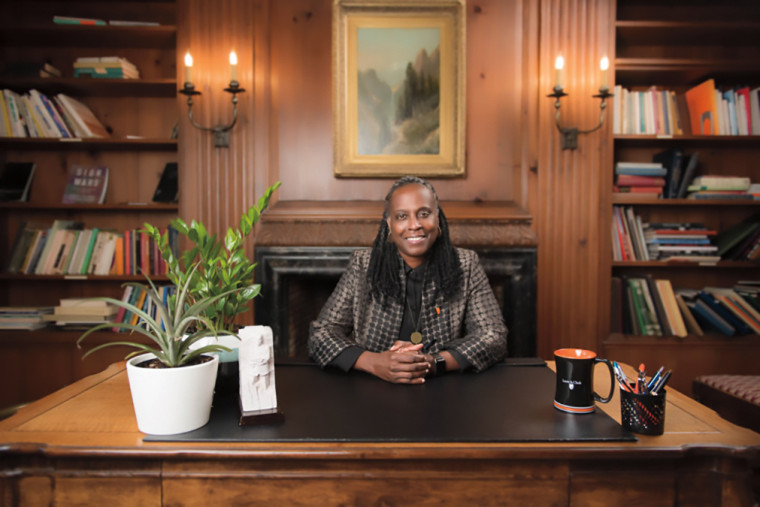Dear L&C Community
Every leader dreams of taking on a key role at just the right moment in history. I feel fortunate beyond words that in becoming the 26th president of Lewis &Clark, I have done just that.
Open gallery

Every leader dreams of taking on a key role at just the right moment in history. I feel fortunate beyond words that in becoming the 26th president of Lewis &Clark, I have done just that.
Lewis &Clark is not just maintaining—it is excelling. Between 2020 and 2022, we made institutional history in terms of enrollment gains, student retention, and private donations. These are amazing accomplishments—and I want to thank each and every one of our talented faculty, staff, students, parents, and donors who contributed to making them possible.
But as grateful as I am, I am also reminded that our work is not done. Higher education is facing many headwinds, including challenges posed by the pandemic, skepticism about the value of a college education, and a steep decrease in the number of Americans under age 18 who are pursuing college. The competition among colleges for the students who remain is fierce! To attract and retain them, colleges need to demonstrate they have something different. Something better. Something that will give students a leg up in achieving their future goals.
Just as we came out of the pandemic stronger than we went into it, I have every confidence that we can—and will—meet these competitive challenges. In this issue (see pages 12-15), I discuss some of the steps needed to achieve that end. These include rewarding excellence across the institution; increasing innovation; prioritizing student needs; telling our story more broadly; and enhancing civic partnerships by sharing our intellectual resources and talents with the larger community.
I want to call particular attention to two of my goals, both of which provide an opportunity for us to better serve our students and be leaders nationwide.
The first of these falls under the rubric of improving support programs and relates specifically to the growing need for student mental health services. Over the next several months, I will be working with some of our government leaders and other college presidents to identify ways we can increase access to counseling services on college campuses while also establishing opportunities for peer support programs and other cost-efficient approaches.
The second area relates to the growing inability of Americans—including college students—to discuss difficult topics with each other in a civil manner. I believe that higher education institutions have a special duty to ensure that their students learn these skills—and that faculty and staff need to lead by example. With that goal in mind, we are launching a program this fall that will train a group of faculty, staff, and students in how to have constructive dialogues, beginning with learning the art of listening first and asking questions second. Once trained, group members will serve as leaders for discussions on one or more challenging topics as a way to help others also learn these techniques. Our ultimate goal is to have the entire community trained in this method and to serve as a model for the country in how to have productive conversations across differences.
I will need your advice, counsel, and support in the days ahead as I work to put my agenda into action. I have already had the opportunity to talk to some of you—and those conversations have been invaluable. I very much look forward to visiting with more of you in the near future, either when you are on our campus or when I have the opportunity to travel to your community.
With appreciation for all your support—and with great optimism for the future,

Robin Holmes-Sullivan, PhD
President
More L&C Magazine Stories
Lewis & Clark Magazine is located in McAfee on the Undergraduate Campus.
MSC: 19
email magazine@lclark.edu
voice 503-768-7970
fax 503-768-7969
The L&C Magazine staff welcomes letters and emails from readers about topics covered in the magazine. Correspondence must include your name and location and may be edited.
Lewis & Clark Magazine
Lewis & Clark
615 S. Palatine Hill Road MSC 19
Portland OR 97219

